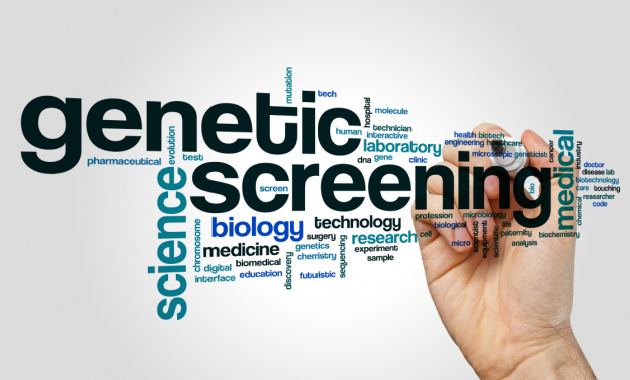
Genetic screening, a pivotal component of modern preventive medicine, systematically utilizes blood or skin samples to search for specific genotypes within defined populations. This process holds immense potential in mitigating the devastating impact of genetic diseases. With our DNA carrying thousands of potential disease-causing variants, scientists search through larger DNA sections called markers to locate these faulty genes, allowing for comprehensive screening from infancy to adulthood and even before birth. By identifying markers for diseases like Alzheimer’s, cystic fibrosis, and certain cancers, researchers are on an exploration of the genetic links to common disorders influenced by genes and the environment.
Genetic screening covers various aspects such as sex determination, abnormalities in chromosome numbers, early and late-onset conditions, susceptibility to certain traits, and carrier status for recessive genes.
Discover your genetic profile today. Schedule a screening.
What is Genetic Screening?
Genetic screening encompasses detecting genetic diseases, broadly defined as a systematic program offered to a specific group of asymptomatic individuals. It utilizes various testing methods to estimate the risk of inheriting a disease, identify an inherited disease in its early stages, or evaluate the likelihood of transmitting it to offspring. The primary goals of genetic screening include disease prevention, early treatment, and informed family planning[1].
Examples of Genetic Screening include the following:
1. Non-invasive prenatal testing/screening (NIPT/NIPS)
A screening procedure conducted during pregnancy assesses the likelihood of a fetus being born with specific genetic abnormalities, including conditions like Down syndrome and other chromosomal disorders. The test is performed without invasive procedures, providing a safer and less risky alternative for expectant parents.
2. Neurosense
A screening test designed to predict an individual’s genetic risk of developing brain diseases such as Parkinson’s disease (PD) and Alzheimer’s disease (AD). By analyzing your genetic makeup, this test can identify whether you have a high, moderate, or average genetic risk for PD and AD. While advancing age is a known genetic risk factor influencing the onset of brain disease, it is important to note that these diseases can occur across all age groups. Neurosense test identifies individuals at risk before the disease manifests, facilitating early diagnosis, which is crucial in managing these conditions.
If you have a family history of PD or AD, or if you are over 18 years of age with or without a history of brain disease, you can take this test. Book the test now!
Is Genetic Screening and Genetic Testing the Same?
Genetic testing primarily examines an individual’s genetic makeup, whereas genetic screening is concerned with analyzing the genetic profiles of entire populations. Genetic screening aims to identify individuals with an elevated risk of developing a particular condition or who may pass it on to their children, focusing on the specific condition during the screening process[2].
Genetic screening tests are typically administered to individuals with no disorder symptoms. These tests aim to assess whether an individual’s likelihood of having a specific condition is higher or lower than others in a similar population. A positive result indicates an increased risk of developing the condition, while a negative result suggests a lower risk. However, it’s important to note that a positive screening result doesn’t guarantee the individual has the condition. Since screening tests provide estimates, there are instances where false positives occur, indicating an increased risk when the person is unaffected, or false negatives arise, indicating a decreased risk when the person is affected. While genetic screening tests don’t offer definitive answers, they can assist in determining the next course of action, such as whether further diagnostic testing is necessary.
In short, genetic screening is conducted on individuals, groups, or populations who do not have a family history of a specific condition. On the other hand, genetic testing is performed when there is a suspicion of increased risk for a particular condition based on the individual’s family history or the outcome of a genetic screening test.
Final Remarks
Genetic screening is a vital health service that involves asking targeted questions or offering tests to individuals in a specific population who may not recognize their risk for a disease or its complications. It targets to identify individuals who would benefit from further tests or treatments. As a secondary prevention strategy, genetic screening aims to detect diseases before symptoms emerge and enable early intervention for better health outcomes[1].
(The article is written by Dr.Subita Alagh, Senior Executive, and reviewed by Monalisa Deka, Senior Health Content Editor)
References
1. Andermann A, Blancquaert I. Genetic screening: A primer for primary care. Can Fam Physician. 2010 Apr;56(4):333-9. Available from: https://www.ncbi.nlm.nih.gov/pmc/articles/PMC2860823/
2. National Human Genome Research Institute: Genetic Screening. Available from: https://www.genome.gov/genetics-glossary/Genetic-Screening